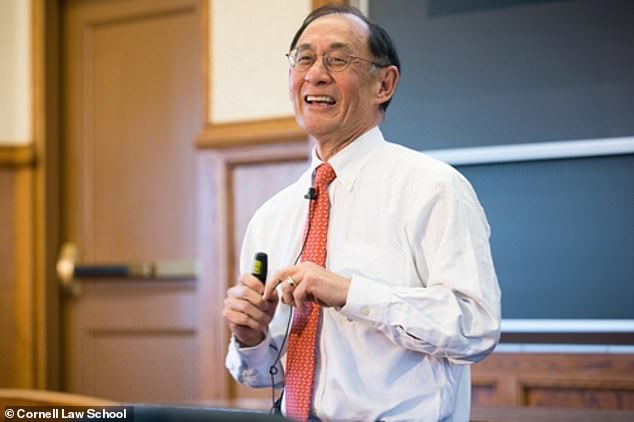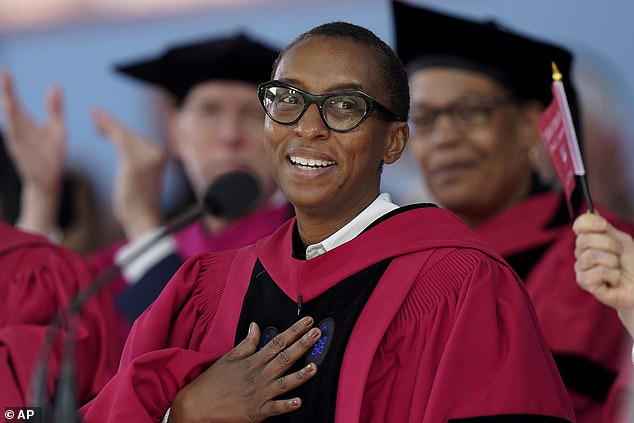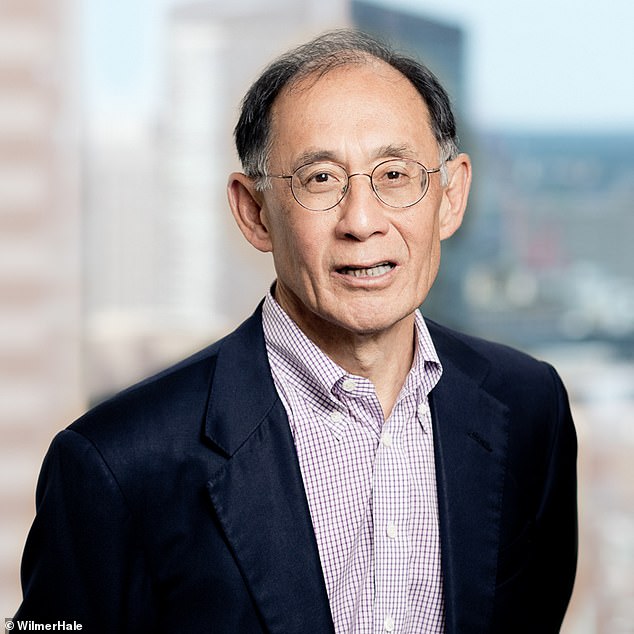REVEALED: Harvard sidelined its crisis communications team, lawyers and leaned on former Corp. head and his law firm ahead of Claudine Gay’s disastrous testimony on anti-Semitism on campus
Harvard's crisis communications team was sidelined ahead of the president's disastrous testimony in Congress, it has emerged — while a lawyer who until recently headed the Harvard Corporation prepared her instead.
Claudine Gay, 53, has been embroiled in a worsening firestorm since her Dec. 5 testimony before the House Education Committee.
Gay and two other university heads — the presidents of MIT and the University of Pennsylvania — were called to testify about efforts to combat anti-Semitism, which has surged after the Oct. 7 terrorist attack and Israel's subsequent response.
The trio gave legalistic answers and could not provide a clear answer to the question of whether calling for genocide against the Jewish people was considered hate speech. UPenn President Liz Magill was forced to resign after her testimony, and Gay has faced similar pressure.
On Thursday, The Harvard Crimson revealed the unusual circumstances surrounding Gay's testimony.
Claudine Gay is pictured testifying before Congress on December 5. It emerged on Thursday that she was accompanied before her appearance by a lawyer who previously headed the Harvard Corporation, the university's governing body.

William F. Lee, co-managing partner at Washington DC law firm WilmerHale, was revealed Thursday to have helped Gay prepare for her December 5 testimony before Congress
Harvard Public Affairs and Communications – the university's public relations department – had hired three companies to help them deal with the fallout from the October 7 attack and their uncertain response to it. Gay was criticized for being slow to condemn students who justified the attacks, and appeared unsure when anti-Semitic activity was reported on campus.
The university's PR team hired external PR firm Edelman; crisis communications company Risa Heller; and media strategy firm AH Levy & Co to help.
But the three outside companies were not involved in helping Gay prepare for the Dec. 5 appearance, the Crimson reported.
Instead, the preparation was led by William F. Lee, a Harvard graduate who until last year was a Senior Fellow—the top leader—of the 12-person Corporation.
Lee, co-managing partner at Washington DC law firm WilmerHale, specializes in intellectual property matters.
His law firm is known for advising high-profile clients ahead of their testimony in Congress — including Mark Zuckerberg, former special counsel Robert Mueller and Richard Nixon.
Lee's involvement and the role other WilmerHale attorneys played may explain why Gay's testimony was so full of legal language, and why it seemed so rehearsed and carefully worded.

Gay, 53, took over as president of Harvard in June and has had an intensely tumultuous first six months
Unable to answer a simple yes or no, Gay repeatedly said, “It depends on the context.”
Her answers caused widespread anger and fueled the perception that she was unable or unwilling to condemn anti-Semitism.
But, says The Crimson, “Lee's influence at the university raises the prospect that no other company was even considered for the work.”
The article continues: “Lee's continued involvement as Harvard's legal counsel will fuel further speculation about the Corporation's role in preparing for Gay's hearing and the board's responsibility for the aftermath.
“It may also help explain why the Corporation ultimately chose to maintain its support of Gay after she faced calls to resign over her testimony.”

Until 2022, Lee served as head of the Harvard Corporation, which runs the university
The Corporation said on December 12 that Gay's job was safe.
They issued a statement acknowledging that Gay had made mistakes but decided she would stay in her job.
The Corporation also referred to allegations of plagiarism that emerged after the Hamas attack, thanks to the intense focus on Gay and her record.
Gay has been accused of borrowing several phrases from the works of other academics and using dubious data in a 2001 article that helped her secure a tenure at Stanford.
Gay and Harvard's lawyers have insisted there was no plagiarism, but they have made “corrections” to two of her academic papers, inserting speech marks and quotations.
